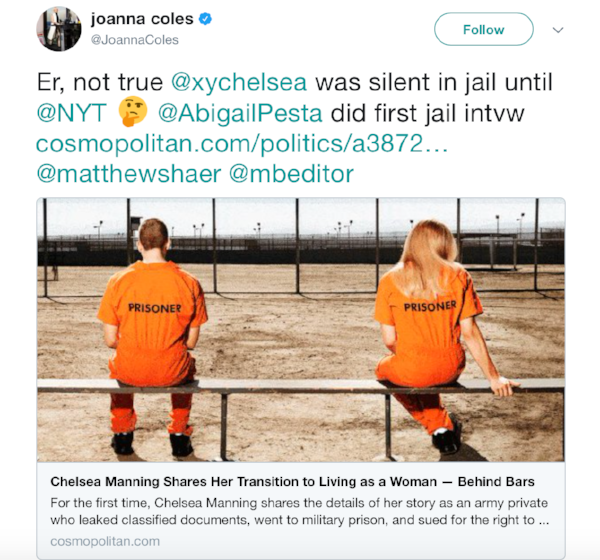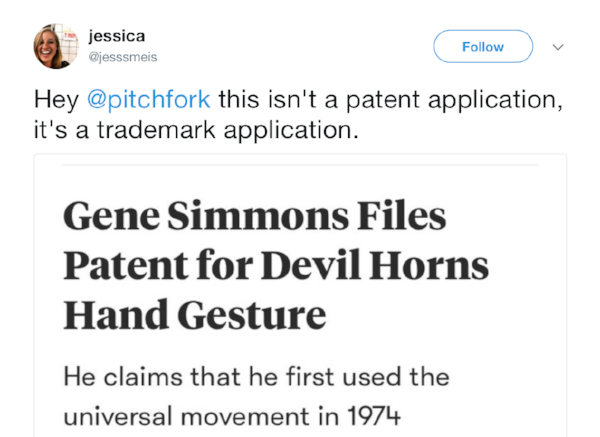Somewhere along the line, the media started publishing less-than-accurate headlines. Not the traditionally “fake news” type – a term that governs the publication of completely false information for the purpose of political or financial gain – but the “lack of fact-checking/editing/knowledge of the topic being written about” type.
Along with this rise in questionably accurate articles and headlines has come a rise in the role of the public – and experts within the general population – to call out erroneous reporting, often by way of social media.
Yes, we are left in an interesting predicament: The news/analysis we are being fed by major media outlets and other sources posing as authorities within their respective fields is often wrong and we, the public, are left to do the fact-checking, research and editing for the publication that should have done it in the first place. How can this be, you ask?

It is actually pretty straightforward. In an effort to increase traffic, publications began offering articles outside of their areas of expertise. And in order to cut costs, publications, particularly web-based ones, began offering jobs to non-experts. As such, we find non-legal experts writing about the law, for instance, (in part because law graduates likely do not want to take the pay cut to write about law, as opposed to practicing it), for example. The result is “copyright”-titled articles that are actually about a completely different type of law … or publications confusing two distinct legal matters.
Still yet, even individuals skilled enough to write on a certain topic are usually under the strain of a tight deadline – because first is best online regardless of accuracy.
“There is pressure on everyone to be first and to correct later, if at all,” according to Dartmouth College professor and columnist Brendan Nyhan, who has written extensively on the accuracy of breaking news coverage.
This lack of balance between speed and accuracy runs rampant in part because “the disincentives of being wrong are so weak,” according to Nyhan. “Most inaccurate stories are never corrected or removed, and even if a correction is made, it rarely attracts the same audience as the initial sensationalized article.”
As such, the level of accuracy in any given article tends to suffer – regardless of whether or not the reader knows enough to identify inaccuracies.

This is largely indicative of the state of the digital landscape. As one anonymous ex-Buzzfeed writer told New York Magazine’s The Cut this spring, her time at the major digital media site consisted of “throw[ing] a bunch of shit at the wall and see what sticks … Some places call it “spray and pray”: post ten things a day, maybe one will go viral … They paid a “traffic bonus,” but only when your work went crazy viral.”
This anonymous individual now works for another website, where he/she “edits about 20 to 40 posts a day.” She describes the writing, “We are in an assembly line and content pops out at the end. There’s no attachment to the finished product. Nobody cares about the quality of their work.”
Slate’s Jon Christian summed it all up pretty well, “Content is created by the lowest bidder, in the highest volume and to the lowest standard that’ll still attract eyeballs on Facebook.” As such, this “is certain to bring some of content’s low-rent sensibilities into the newsroom, and particularly the odious idea that page views are more important than basic, decent things like tracking down sources and fact checking and using common sense.” Unfortunately, Christian is right.

In a telling article published by 032c in May, the founders of massive menswear sites, HypeBeast and HighSnobiety, shed light on the state of digital media. The founders of HighSnobiety told 032c’s Thom Bettridge that “The Golden Rule” of their site is: “Always post about news and innovations, and post it fast.”
Talking about HighSnobiety competitor HyeBeast, Bettridge goes on to note, “Speed and newness are central to the [site’s] methodology. Each of its sub-editors are tasked with creating nearly a dozen articles during each work day, sometimes up to 20. This super-human output is made possible by a craft called ‘re-posting’ … Favorites from [a pool of already-existing articles] are finessed, copy-pasted, and paraphrased into short web articles” for the HypeBeast site.”
Nowhere does the 032c article suggest that additional research is done or any outside sources consulted to verify information aggregated and posted on the now publicly traded media company’s site. (HypeBeast IPO-ed in April 2016 in Hong Kong). That would arguably take too much time. And this is not to single out these two big sites, because this is – quite frankly – the norm in much of the digital media universe.
As such, digital media is basically a URL iteration of Snapple’s “Real Facts,” the beverage company’s longtime practice of printing its bottle caps with “facts” – some true, some not so true, and not indicating which are which. As a result, the reader was left to assume that some of the false info was actually true or vice versa, unless, of course, you have a handy-dandy Twitter friend on hand to provide the correct info for you. And in case you do not, you are left to merely assume that the average dog REALLY CAN understand over 150 words – “Real Fact” #1284. Turns out, that one really was true.








